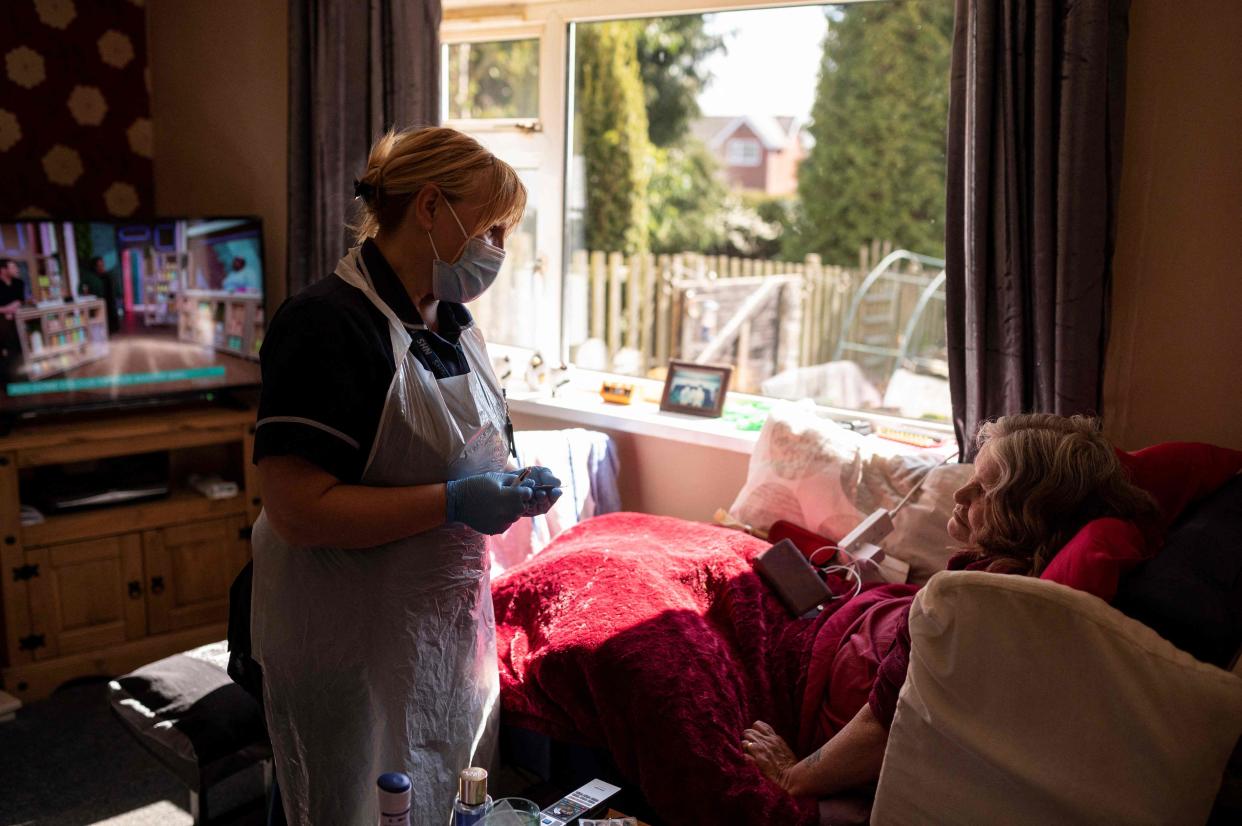Covid: 800,000 clinically vulnerable people may have missed support, MPs say

Poor data may have resulted in 800,000 clinically vulnerable people losing out on government support at the outset of the Covid-19 pandemic, MPs have said.
A lack of joined-up systems between public bodies meant that it took too long to identify people at a time when their need was urgent, the Commons Public Accounts Committee said.
Of those who slipped through the net, almost half - 375,000 - could not be contacted due to missing or incorrect telephone numbers in their NHS records.
The government originally asked people in England considered to be the most vulnerable to Covid-19 to "shield" in March last year.
Initially, NHS Digital drew up a list of 1.3 million people who would be eligible for support while they were required to isolate at home.
However, the committee said that it became a "postcode lottery" after local GPs and hospital doctors were invited to review the list and use their clinical judgment to add or remove people.
The resulting increase in the numbers ranged from between 15 per cent and 352 per cent depending on the local authority areas, with the list more than doubling in 33 authorities.
The committee said that this represented an "unacceptable level of variation" between different areas.
When the list did finally "stabilise", more than six weeks after it was first launched, it had grown to 2.2 million.
However, a central contact centre set up to trace people who did not respond to an initial letter advising them to shield was unable to reach 800,000, despite making hundreds of thousands of calls a day.
The committee said that the Ministry of Housing, Communities and Local Government still did not know whether these people had been contacted by their local authorities.
"The programme suffered from the problems of poor data and a lack of joined-up systems that we see all too often in government programmes, the committee said.
"As a result, government took too long to identify some clinically vulnerable people at a time when their need was urgent."
Committee chairwoman Meg Hillier said that while the plans were eventually "sensibly" devolved to local authorities, it raised questions about the balance between central decision-making and local knowledge.
"The shielding response in the Covid pandemic has particularly exposed the high human cost of the lack of planning for shielding in pandemic-planning scenarios. It also highlights the perennial issue of poor data and joined-up policy systems," she said.
"People were instructed to isolate, to protect themselves and others - but the cost of this protection was reduced access to living essentials like food, and an untold toll on the mental health and wellbeing of the already most vulnerable."
Read More
Government admits ‘no assessment’ carried out of harm from 60% Yemen aid cut
India’s daily Covid death toll climbs above 2,000 for first time

 Yahoo News
Yahoo News 
